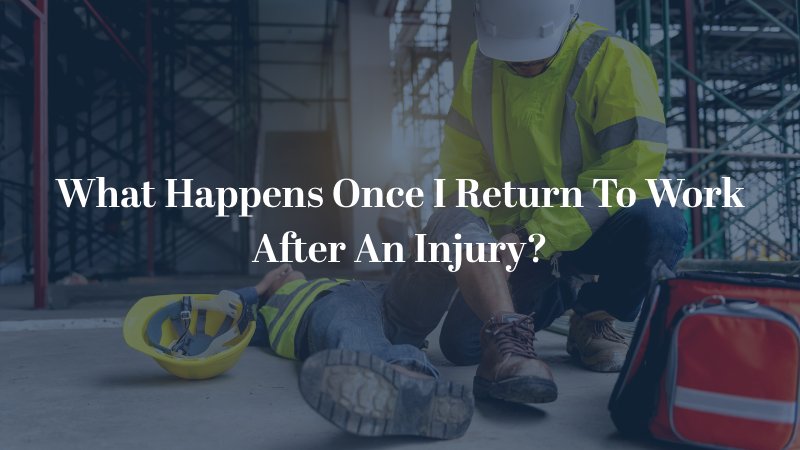
Returning to work after a work-related injury is a significant milestone in the recovery process. It signals not just a return to normalcy and stability reached through healing, but also represents the resilience and determination required for reintegration into your working life. This step means you can once again earn full wages, engage with colleagues, and hopefully regain complete financial independence.
However, this transition doesn’t come without its challenges ahead; it requires careful consideration of any remaining limitations due to injuries that were sustained and adjustments that might now be necessary.
Navigating the shift back into your professional role requires coordination between you, your healthcare provider, and your employer to ensure that you’re not putting yourself at risk for re-injury or exacerbating existing conditions. Here’s what you should keep in mind if you find yourself in this situation:
Understand The Return-to-Work Process: Medical Clearance
As you prepare to re-enter the workforce after an injury, obtaining medical clearance from your healthcare provider is a pivotal step. This clearance indicates that you are medically fit to return to work and have reached a sufficient stage of recovery allowing for participation in employment activities.
However, it’s important to note that this clearance might come with specified restrictions or modifications based on your recovery status. These can include limitations on how much weight you’re allowed to lift at one time if heavy lifting is part of your job duties, for example.
You Can Appeal The Decision That You’re Fit For Work
If you’ve received a decision that declares you fit for work from either your personal physician or a workers’ comp appointed doctor, under the rules of most workers’ compensation systems, it is expected that you’ll return to employment. If you genuinely believe this decision doesn’t align with your health status or capabilities, and returning to work could adversely affect your recovery, you may be able to appeal this decision.
Appeals processes may include requesting a re-evaluation by another healthcare provider and presenting additional medical evidence demonstrating why returning to work might hinder rehabilitation efforts further down the line.
Your Employer May Not Be Required to Hold Your Job While You’re Out of Work
While workers’ compensation provides financial assistance during your recovery period, these benefits do not necessarily protect your job – in many instances, there’s no legal obligation for an employer to hold your position open until you’re able to return once you’ve recovered.
Federal laws like the Family Medical Leave Act (FMLA) provide some job protection, but workers’ comp does not have the same rules. This reality means that acting promptly when given clearance for work is typically in your best interest.
It’s essential to understand that while your employer isn’t required to keep your job open indefinitely, they cannot fire you explicitly for filing a workers’ compensation claim. That would constitute retaliation, which is against the law. If you suspect that an adverse action taken by an employer was in direct response to filing a worker’s comp claim or taking the necessary time off due to a work-related injury or illness, legal avenues are available.
If you have questions about returning to work after a workers’ compensation claim or if you are uncertain about your readiness to return, legal support is available. Contact our Washington D.C. workers’ compensation attorney for a free consultation so we can discuss your specific situation and outline the best course of action.